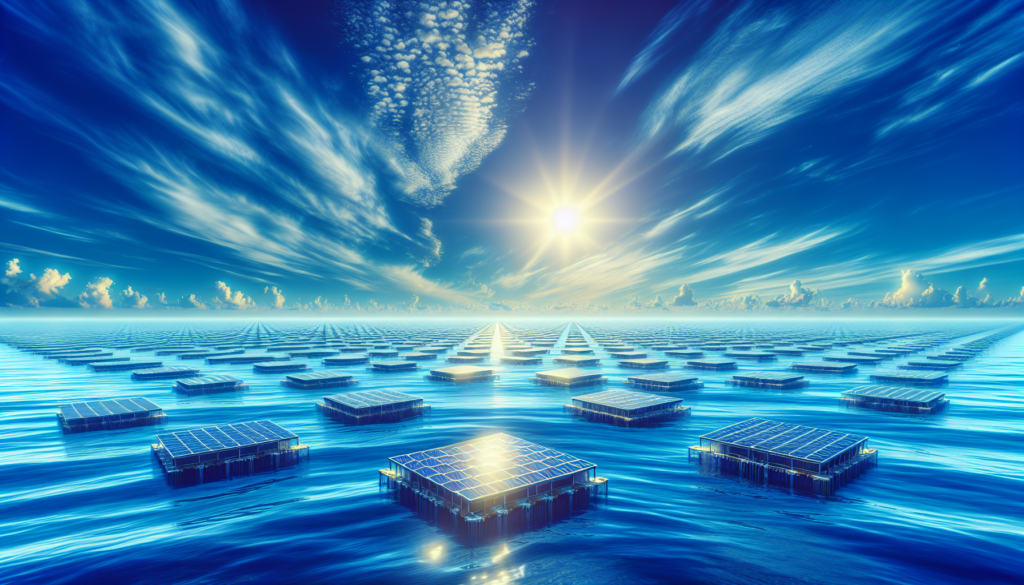Exploring the Power of Marine Solar Panels
As the world increasingly looks towards sustainable energy solutions, the utilization of solar power has gained significant traction. Solar panels have become a ubiquitous sight on rooftops and in solar farms, harnessing the sun’s energy to generate electricity. However, the application of solar panels extends beyond land-based installations. In recent years, marine solar panels have emerged as a promising technology with the potential to revolutionize the marine industry. In this comprehensive guide, we delve into the world of marine solar panels, exploring their benefits, applications, challenges, and future prospects.
The Evolution of Marine Solar Panels
The concept of harnessing solar energy on water bodies is not a new one. The idea of using solar panels on boats and other marine vessels dates back several decades. However, advancements in technology and materials have significantly improved the efficiency and durability of marine solar panels. Today, these panels are specifically designed to withstand the harsh marine environment, making them a viable and sustainable energy solution for a variety of marine applications.
The Benefits of Marine Solar Panels
One of the primary advantages of marine solar panels is their ability to generate clean energy without relying on fossil fuels. By harnessing the power of the sun, marine solar panels reduce the carbon footprint of marine vessels, contributing to environmental sustainability. Additionally, marine solar panels can help reduce operating costs for boat owners by providing a source of free and renewable energy. This can be particularly beneficial for long-haul voyages where access to traditional power sources may be limited.
Applications of Marine Solar Panels
Marine solar panels have a wide range of applications across different types of marine vessels. From sailboats and yachts to commercial ships and offshore platforms, solar panels can be integrated into various marine structures to provide supplemental power. In some cases, marine solar panels can even serve as the primary power source for smaller vessels, reducing the reliance on diesel generators and batteries. Additionally, marine solar panels can be used to power onboard systems such as navigation equipment, lighting, refrigeration, and communication devices.
Challenges and Considerations
While marine solar panels offer numerous benefits, there are also challenges and considerations that need to be taken into account. The marine environment can be harsh and unpredictable, with exposure to saltwater, high winds, and rough seas. As such, marine solar panels need to be specially designed to withstand these conditions and ensure optimal performance. Additionally, the limited space available on most marine vessels can pose a challenge when it comes to installing solar panels. Careful planning and design are essential to maximize the efficiency and effectiveness of marine solar panel installations.
Future Prospects and Innovations
Despite the challenges, the future looks bright for marine solar panels. Advances in materials science and technology are driving innovation in the design and manufacturing of marine solar panels, making them more efficient, durable, and cost-effective. The integration of smart technologies and energy storage solutions is also enhancing the capabilities of marine solar panels, allowing for greater flexibility and reliability. As the demand for clean energy solutions continues to grow, marine solar panels are poised to play a crucial role in the transition towards a more sustainable marine industry.
Expert Opinions
Industry experts agree that marine solar panels have the potential to transform the marine industry by providing a clean and renewable source of energy. According to Dr. Sarah Johnson, a marine engineer specializing in sustainable energy solutions, “Marine solar panels offer a unique opportunity to reduce emissions and operating costs for marine vessels. By harnessing the power of the sun, we can create a more sustainable future for the marine industry.”
Conclusion
To wrap things up, marine solar panels represent a promising technology that has the potential to revolutionize the marine industry. By harnessing the power of the sun, these panels offer a clean, renewable, and cost-effective energy solution for a wide range of marine applications. While challenges exist, ongoing innovations and advancements in technology are driving the growth and adoption of marine solar panels. As we look towards a more sustainable future, marine solar panels will undoubtedly play a crucial role in reducing the environmental impact of the marine industry.
Are you ready to embrace the power of marine solar panels and sail towards a greener future?



